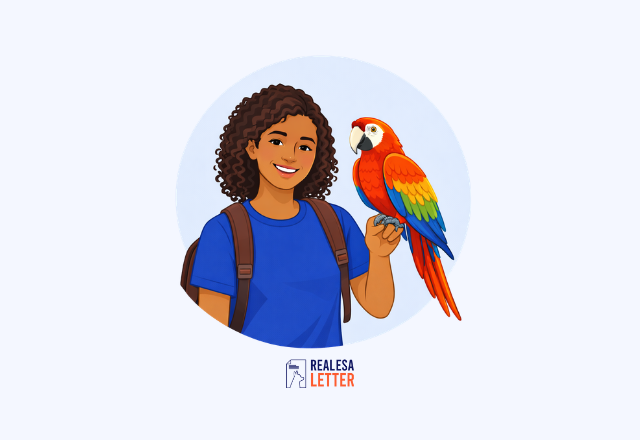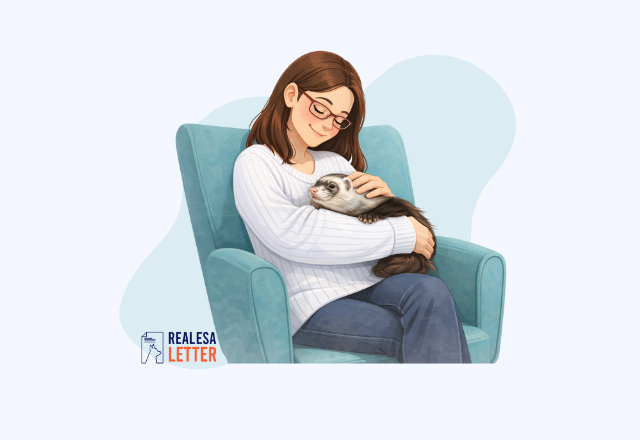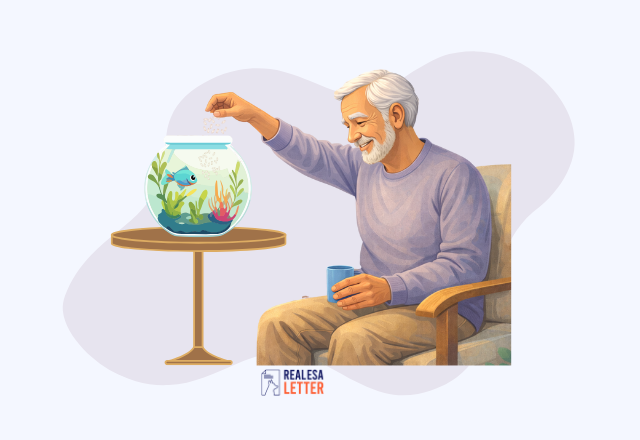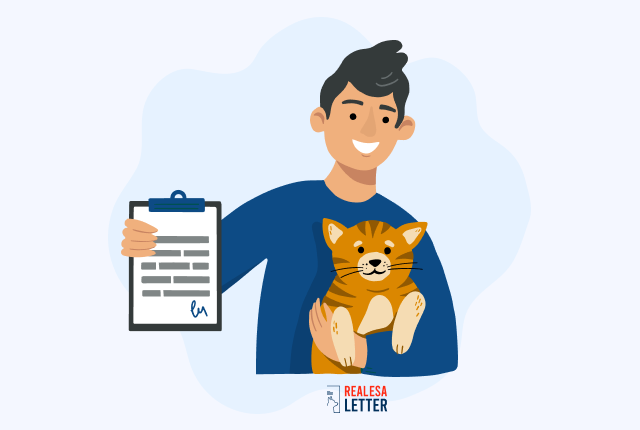Yes, cats can be emotional support animals. Many people think only dogs can be ESAs, but that is not true.
Some people are cat people, and a calm, loving cat can be a steady comfort. If you live with anxiety, depression, or other mental health needs, a cat’s routine and quiet company can help. In some cases you can have multiple ESAs depending on your needs. Your clinician must decide that each animal helps with different symptoms or needs.
To make it official, you need a valid ESA letter from a licensed mental health professional. This guide explains what that means, your basic rights, and how to get started.
Why Cats Make Wonderful ESAs
Cats shine as emotional support animals because they fit easily into daily life and calm the room. An emotional support animal helps through presence, routine, and gentle contact.
An ESA cat does not need to be trained to perform tasks like a service animal. Your comfort and stability are the goal.
Here’s why ESA cats are so loved:
- Calming presence: A purring cat can nudge you toward slower breathing, which helps regulate stress responses associated with mental health issues.
- Routine and structure: Feeding, playtime, and litter scooping encourage regular daily rhythms that can support mood stability.
- Low maintenance: Compared to some types of animals, cats are typically easier in smaller spaces, which suits apartments and dorms.
- Bonding and empathy: Many guardians describe feeling “seen” by their cat, especially during episodes of mental or emotional overwhelm.
ESA vs. Service vs. Therapy: What’s the difference?
There’s a common misconception that ESAs and service animals have the same rights. They don’t, all helping animals cater to different needs and have varying rights.
Emotional support animals help with anxiety, depression, or other mental health needs. They do not need task training.
Service animals are trained to perform specific tasks for a disability. They have public access rights under the ADA. They are almost always dogs.
Therapy animals visit and comfort other people in hospitals or schools. Programs may screen for good manners and temperament. They do not have public access rights.
Here are more differences cleared up:
| Emotional Support Animal (ESA) | Service Animal | Therapy Animal |
What they do | Provide comfort that helps an owner’s mental health | Are individually trained to perform specific tasks for a disability (e.g., guiding, alerting) | Visit other people (e.g., hospitals/schools) to bring comfort |
Training required? | No specialized training required | Yes—task-specific training | Basic obedience/temperament screening; sometimes extra certification programs |
Who qualifies? | Person with a mental health disability who benefits from the animal’s presence | Person with a qualifying disability who needs task assistance | Not about the handler’s disability—goal is to comfort others |
Where allowed? | Housing protections under FHA; no general public access | Broad public access under ADA | No special public-access rights |
Cat eligibility | Cats can be ESAs | Under ADA, cats are not recognized as service animals (service animals are dogs; miniature horses in limited cases) | Cats can be therapy animals if they meet program standards |
What Rights Do ESA Cats Have
Emotional support animals and service animals do not have the same rights.
Because of this, an ESA cat has strong housing protections, but not broad public-access rights. Airlines also treat ESAs differently than service dogs. Below is a clear look at each U.S. law that matters.
Fair Housing Act (FHA): Housing Rights
If your ESA cat helps with mental or emotional symptoms and you have a letter from a licensed mental health professional, you are protected under the FHA.
This protection lets you ask your housing provider for a reasonable accommodation, even if the property has a no-pet rule.
Here’s how ESA cats are protected under the Fair Housing Act:
- Reasonable accommodation: You can live with your ESA cat in housing that bans pets.
- No extra pet charges: Pet rent and pet deposits should be waived for a verified ESA. You still cover any real damage.
- Simple documentation: Provide an emotional support animal letter from an LMHP who knows your case. Housing can ask for this letter but not your full medical history.
- No special training required: ESAs are not trained to perform tasks like service animals, and housing cannot demand training proof.
- No “registration” requirement: There is no official registration process for ESAs, so landlords should not require paid certificates or IDs.
- Limited reasons to deny: A request can be declined only in narrow cases, such as a direct threat that cannot be reduced or an undue burden on the housing provider.
Where it applies:
Rentals, condos, HOAs, and campus housing are all covered.
Americans with Disabilities Act (ADA): Public Places
The ADA gives public-access rights to service animals. ESAs are not covered for public access.
Key points
- ESAs do not have a right to enter restaurants, stores, theaters, or most workplaces.
- Under the ADA, service animals are dogs that are trained to perform specific tasks. A cat doesn’t qualify as a service animal under the ADA.
- Businesses may allow pets by choice, but they are not required to allow ESAs.
Air Carrier Access Act (ACAA): Air Travel
When flying with an ESA cat, here are the key regulations under ACAA to keep in mind:
- ESAs are not “service animals.” Under the ACAA, a service animal is a dog that is individually trained to perform tasks for a person with a disability. Emotional support animals (including cats) are not service animals under this rule.
- Airlines may treat ESAs as pets. The DOT’s 2020 final rule allows airlines to classify ESAs as pets and apply standard pet policies like carrier size and fees.
- Forms apply to service dogs, not ESAs. Airlines may require DOT Service Animal Air Transportation forms for service dogs (attesting to health, behavior, and training). These forms do not grant ESA status.
How to Get an ESA Letter for Your Cat
You may qualify for an emotional support animal if you live with anxiety, depression, or other mental health needs and your cat helps ease those symptoms. A LMHP reviews your situation and confirms that an ESA supports your mental or emotional well-being.
At RealESALetter.com, we connect you with a licensed mental health professional who can evaluate your needs and, if appropriate, write a compliant ESA letter for housing.
- Online assessment at our website
Start a quick, secure questionnaire so we can understand your needs and match you with a provider in your state. - Consultation with an LMHP
Meet by phone or video with a licensed mental health professional who reviews your history and answers questions. - Discuss need for a cat
Talk through how an ESA cat supports your mental or emotional health (anxiety, depression, or other mental health concerns). If appropriate, the clinician will recommend an ESA. - Receive your letter online
Get a downloadable PDF on professional letterhead with licensing details—ready to share for Fair Housing Act accommodations.
Want to see exactly what landlords expect? Here’s a sample ESA letter you can preview and use as a reference while you complete the steps:
Sample ESA Letter
To wrap things up, cats can be powerful emotional support animals for many people. If you live with anxiety, depression, or other mental health needs, the steady presence of an ESA cat can bring calm and structure to your day.
Your ESA cat has strong housing protections under the Fair Housing Act. Most airlines treat ESAs as pets, and public places follow their own rules. The key is a valid ESA letter from a licensed mental health professional who understands your situation. To stay protected long-term, remember to renew your ESA letter yearly.
If you are ready to turn your cat’s comfort into protected support at home, make it official. Get a legitimate ESA letter through RealESALetter.com today and feel confident sharing it with your housing provider.
Start now and take the first step toward calmer days with your cat by your side.
Pricing
PSD Letter
Reviews
ESA By States
ESA Laws
Resources













